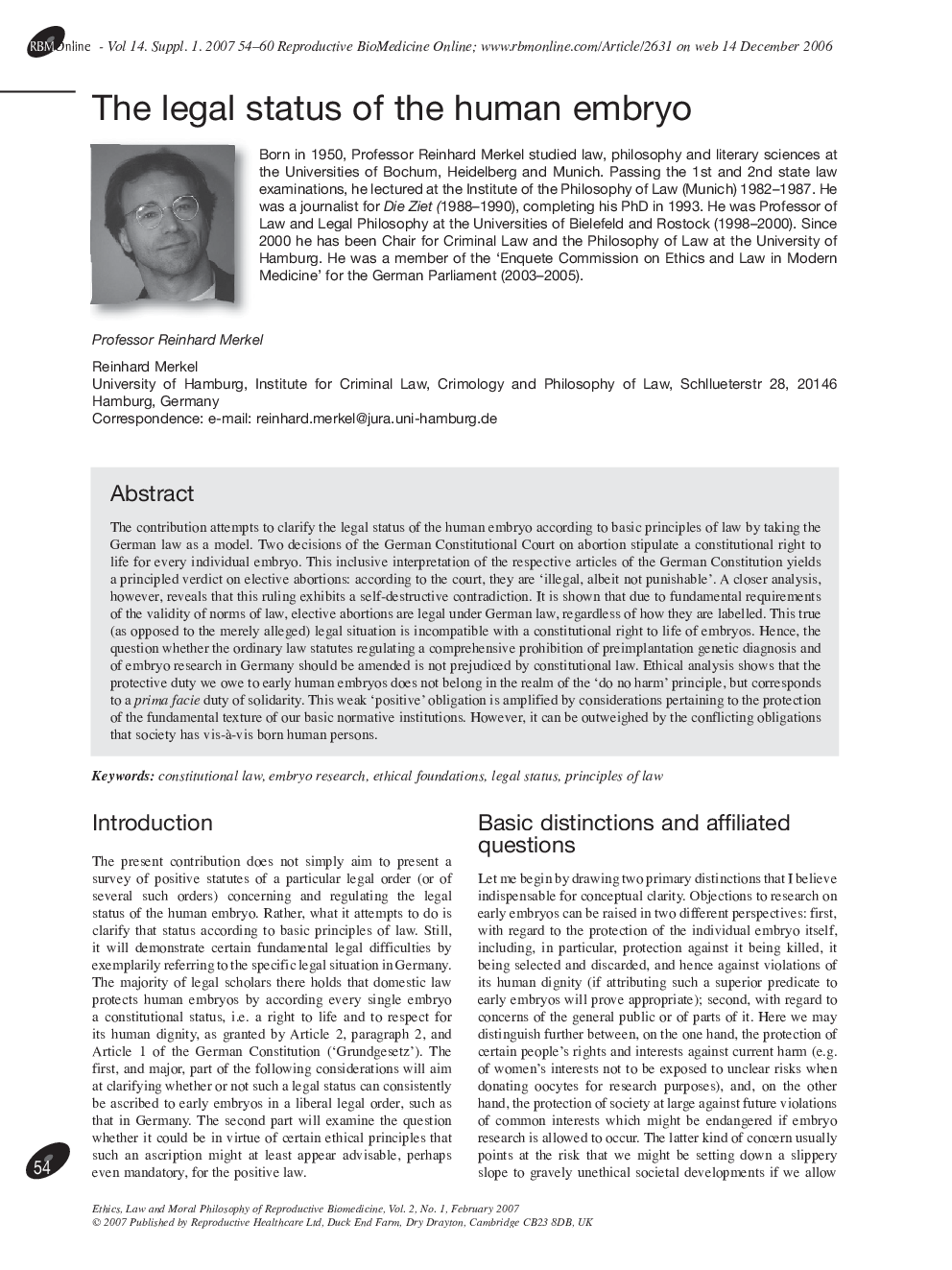| Article ID | Journal | Published Year | Pages | File Type |
|---|---|---|---|---|
| 3973482 | Reproductive BioMedicine Online | 2007 | 7 Pages |
The contribution attempts to clarify the legal status of the human embryo according to basic principles of law by taking the German law as a model. Two decisions of the German Constitutional Court on abortion stipulate a constitutional right to life for every individual embryo. This inclusive interpretation of the respective articles of the German Constitution yields a principled verdict on elective abortions: according to the court, they are ‘illegal, albeit not punishable’. A closer analysis, however, reveals that this ruling exhibits a self-destructive contradiction. It is shown that due to fundamental requirements of the validity of norms of law, elective abortions are legal under German law, regardless of how they are labelled. This true (as opposed to the merely alleged) legal situation is incompatible with a constitutional right to life of embryos. Hence, the question whether the ordinary law statutes regulating a comprehensive prohibition of preimplantation genetic diagnosis and of embryo research in Germany should be amended is not prejudiced by constitutional law. Ethical analysis shows that the protective duty we owe to early human embryos does not belong in the realm of the ‘do no harm’ principle, but corresponds to a prima facie duty of solidarity. This weak ‘positive’ obligation is amplified by considerations pertaining to the protection of the fundamental texture of our basic normative institutions. However, it can be outweighed by the conflicting obligations that society has vis-à-vis born human persons.
